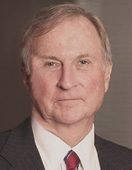President Donald Trump’s proposed $4.8 trillion budget calls for folding the Public Company Accounting Oversight Board (PCAOB), America’s audit watchdog, into the Securities and Exchange Commission, the nation’s primary financial regulator. The stated goal is to eliminate duplicative regulations and save money. It would do neither. Instead, it would send a harmful message that high quality audits are no longer a priority.
The Sarbanes-Oxley Act of 2002 established the PCAOB as a not-for-profit corporation whose mission is to inspect audits, establish audit standards, and enforce compliance with those standards. Sarbanes-Oxley was itself a bipartisan landmark, enacted in response to the accounting and auditing scandals at Enron, WorldCom, and other public companies. The PCAOB is at the heart of that bipartisan spirit, and preserving its independence is essential.
Independence, Expertise, Funding
Consider, first, a view from abroad. In late 2018, at the behest of Parliament, Sir John Kingman issued an independent review of the UK audit oversight regime in response to a major auditing and accounting failure in the UK. His report cited the PCAOB as a model for audit oversight, one that the UK should emulate. In particular, the report praised the PCAOB’s (i) formal independence from the overseen profession, (ii) highly-expert staff, whose deep auditing experience allowed it to “go toe-to-toe” with major accounting firm partners, and (iii) funding model, which is independent from the profession and sufficient to compensate and maintain the expert staff. The Kingman Report should be studied by anyone who doubts that the PCAOB is a national and international asset to our capital markets and a credit to what Congress can accomplish when the planets align.
The PCAOB is also a bargain: It receives no tax revenues. In fact, its budget is entirely funded by a support fee from public issuers, scaled to the size of their capitalization, which means every issuer’s share is de minimis to it and most issuers are not required to pay anything at all. PCAOB staff inspectors will never earn what they could as senior auditors of major firms, but the compensation scale contemplated in the act – that it be “competitive” with the private sector – has enabled the recruitment and retention of a staff that commands the respect of the profession and counterparts abroad.
The Global Audit Requires a PCAOB with International Competence and Reach
PCAOB inspections and enforcement extend to all components of the audits of U.S. issuers, including audits of non-U.S. operations. Nearly any week in the year, PCAOB inspectors are abroad – often working efficiently in long-standing partnerships with local regulators – to make sure that investors in U.S. markets receive the full benefit and protection of the U.S. laws and standards that make our markets so attractive to investment. This is essential for audit quality where the partnership or affiliate structure of the global audit-firm networks may actually work against consistency in audit practices and quality. The PCAOB has gained the respect and confidence of the authorities in the non-U.S. jurisdictions where it inspects.
Economic Analysis Confirms PCAOB Oversight Improves Audit Quality
The PCAOB’s Office of Economic and Risk Analysis has, through its staff and economic fellows, developed a robust body of research on the role of the PCAOB inspection regime in buttressing audit quality. Bearing in mind that auditing standards are predominantly promulgated by the profession, it is nonetheless meaningful to measure the extent to which PCAOB inspections have resulted in more creditable auditing under those standards. The research reveals that, when the PCAOB finds deficient audits, the engagement teams on those audits raise their game – without a commensurate increase in audit fees but with a statistically significant reduction in restatements.
Auditor Responsibility, Transparency and the Expectation Gap
As a result of PCAOB standard-setting, the audit report now speaks to some critical issues of audit practice. Given time, more public understanding of the practices affecting the individual audit will support public confidence in the integrity and value of the audit process. The expectation gap between the popular notion of audits and reality is longstanding, but reasonable disclosure approaches may help to close it.
Clarifying auditor responsibility to look for fraud tops the list. The audit report requires an audit firm to state its duty to employ procedures reasonably designed to detect material misstatements in the financials whether due to error or fraud. This is important to counter public statements that suggest an auditor has no responsibility for fraud detection.
Further, the audit report now includes a discussion of Critical Audit Matters – those relating to (i) a material item or disclosure and (ii) particularly challenging or subjective audit judgments – and how the auditor addressed these challenges. Finally, auditing firms now file with the PCAOB public disclosure of the identity of the engagement partner. Information long considered relevant to the risks to an individual audit – the number of audits supervised by the engagement partner, the engagement partner’s history, including enforcement – can now be accumulated in a database and consulted by audit committees and investors.
These standards were adopted by the PCAOB after public notice and comment from a broad range of sources (audit firms, preparers, investors, academics, exchanges, other governmental agencies) and involved extensive economic analysis. After the PCAOB’s board deliberated and voted to adopt the standards, the PCAOB was able to deliver robust rulemaking records to the SEC, sparing duplicative work by the SEC in its consideration of whether to approve the standards, as provided in Sarbanes-Oxley.
And this is why Congress made the right choice in keeping the PCAOB independent: Reliable audits are a cornerstone of promoting investor trust and facilitating investment that grows capital markets and a healthy economy. Maintaining an independent audit oversight body singularly focused on those goals is the best way to ensure we will achieve them.
This post comes to us from James R. Doty, who served as chairman of the Public Company Accounting Oversight Board from 2011 to 2018.
 Sky Blog
Sky Blog
